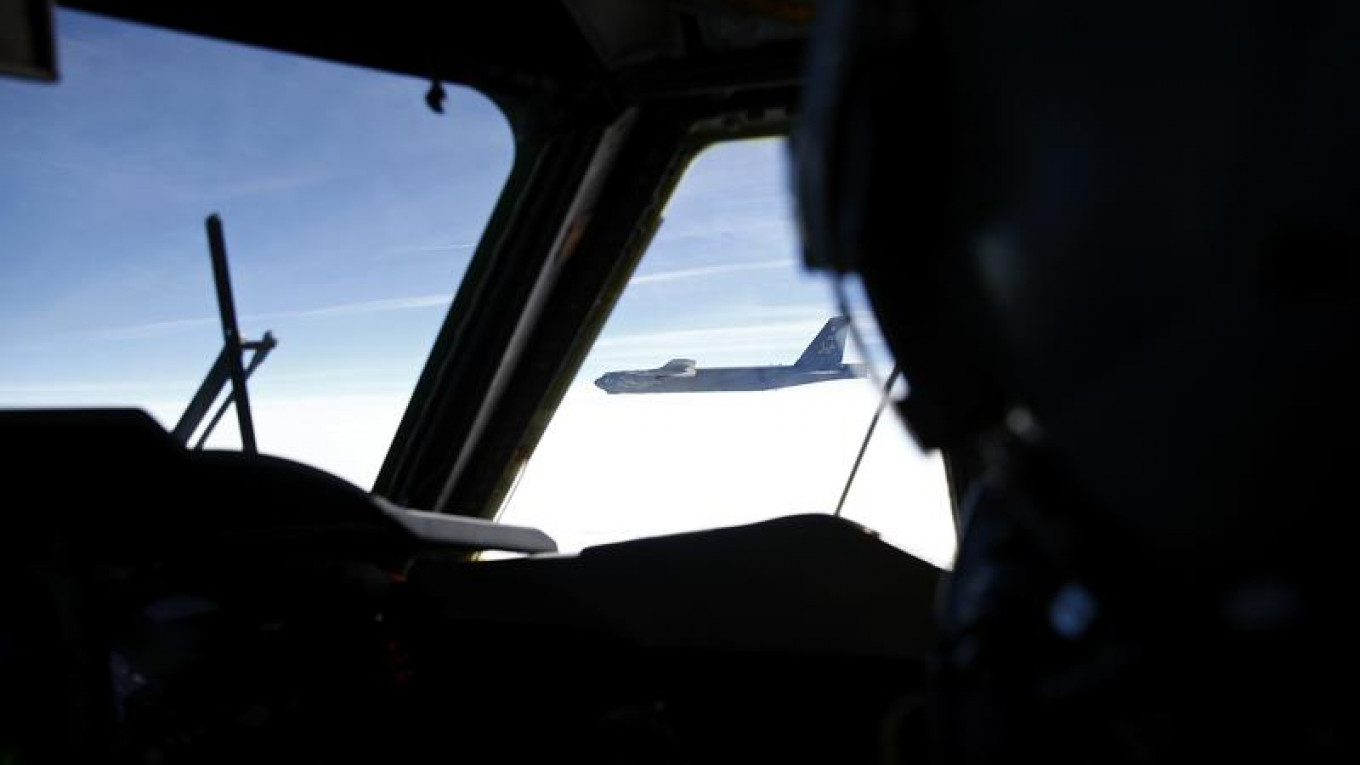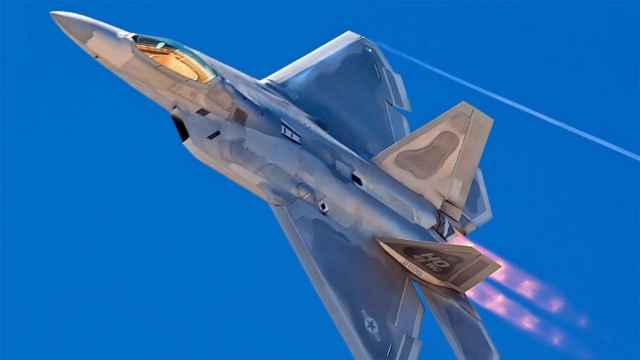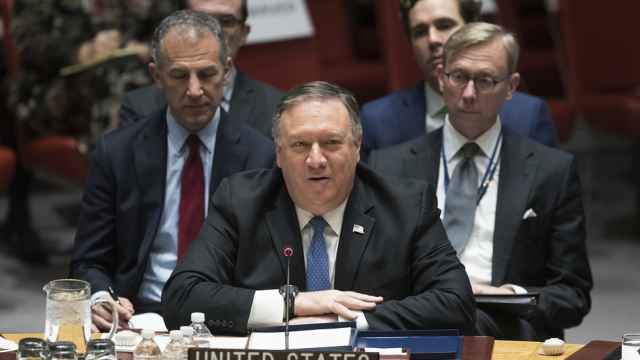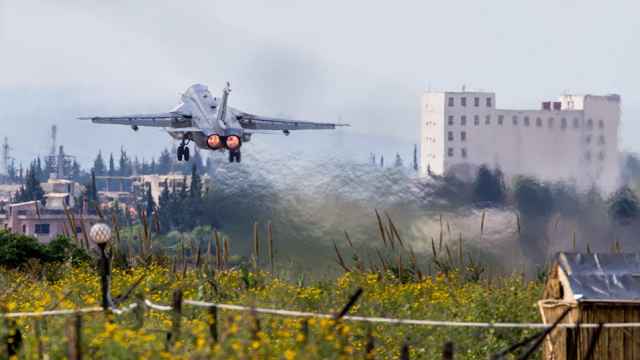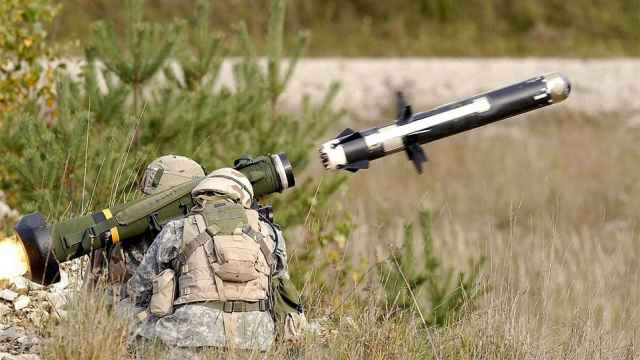The Kremlin on Thursday complained that flights by U.S. nuclear-capable B-52 strategic bombers across the Baltic Sea near Russia's borders were creating tensions in the region, but Washington said they were needed to deter potential adversaries.
Russia's Defense Ministry said earlier on Thursday that it had scrambled two Sukhoi SU-27 fighter jets to intercept a U.S. B-52 strategic bomber which radar systems indicated was flying towards Russia's borders, albeit at a considerable distance.
The ministry said the fighter jets had returned to base after the B-52 changed course and headed in the opposite direction. It did not say when the incident occurred.
"In general, I will limit myself to only saying that of course such actions by the United States do not lead to a strengthening of an atmosphere of security and stability in the region that directly adjoins Russia's borders," Kremlin spokesman Dmitry Peskov told reporters on a conference call.
"On the contrary, they create additional tensions."
Relations between Russia and NATO have been acutely strained since Moscow's 2014 annexation of Ukraine's Crimea and its backing for pro-Russian separatists in eastern Ukraine. Russia accuses the Western military alliance of an unjustified military build-up near its borders, while NATO has condemned Moscow for building up its own forces in Crimea and the Black Sea region.
The U.S. embassy in Poland said that B-52 bombers had flown to Lithuania and Poland on Wednesday to conduct interoperability training with NATO forces.
It said the planes, which were temporarily based in Britain, had carried out simulated bombing runs.
"Operating out of forward locations enables collective defense capabilities ... needed to deter adversaries and assure our allies and partners," it said in a statement.
Russian media reported that a B-52 bomber was spotted close to the border with Russia's European exclave of Kaliningrad and the Leningrad region on Monday. At one point, the RBC news portal reported, the U.S. plane, which had flown from Britain, was less than 200 kilometers from St. Petersburg.
Another B-52 was spotted in the Baltic region on March 16, it added.
Such flights, seen as a show of force designed to test response times and deter, are also carried out by Russia. Moscow sends its own nuclear-capable strategic bombers on similar missions, which NATO jets intercept in the same way.
A Message from The Moscow Times:
Dear readers,
We are facing unprecedented challenges. Russia's Prosecutor General's Office has designated The Moscow Times as an "undesirable" organization, criminalizing our work and putting our staff at risk of prosecution. This follows our earlier unjust labeling as a "foreign agent."
These actions are direct attempts to silence independent journalism in Russia. The authorities claim our work "discredits the decisions of the Russian leadership." We see things differently: we strive to provide accurate, unbiased reporting on Russia.
We, the journalists of The Moscow Times, refuse to be silenced. But to continue our work, we need your help.
Your support, no matter how small, makes a world of difference. If you can, please support us monthly starting from just $2. It's quick to set up, and every contribution makes a significant impact.
By supporting The Moscow Times, you're defending open, independent journalism in the face of repression. Thank you for standing with us.
Remind me later.


